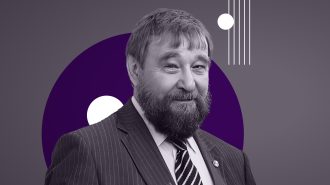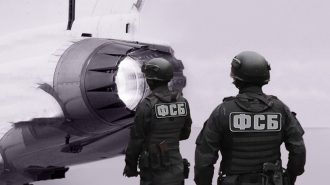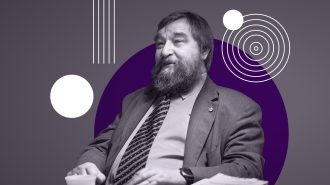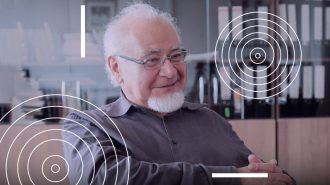T-invariant opens a series of publications related to the second anniversary of the war with Ukraine. In the first investigation, we tell how the FSB of the Russian Federation launched the largest “case of scientists” in modern Russia, pursuing the signatories of an anti-war letter throughout the country.
Eugene Nasyrov
In 2023, the FSB began subjecting dissenters to punitive psychiatry. Corresponding Member of the Russian Academy of Sciences Sergei Abramov left the psychiatric hospital after the examination and became familiar with the updated version of the charges. T-invariant spoke with the scientist about his life with the “extremist” label, his political views and the reasons for the security forces’ attack on the Russian supercomputer industry.
New detainees in the case of Siberian scientists from the Institute of Theoretical and Applied Mechanics (ITPM) named after. Christianovich of the Siberian Branch of the Russian Academy of Sciences, accused of treason, was scientist Vladislav Galkin from Tomsk. The human rights organization First Department is confident that the repressive campaign is growing and the next victim of the FSB could be absolutely any scientist who has worked on this topic as part of international collaborations.
In Togliatti, in the local special economic zone (SEZ), they can build another plant for the assembly of Iranian combat drones. There is no official information about this and in words the plans are purely peaceful. The EFKO group of companies, the founder of enterprises producing drones in Tolyatti, pretends that it has nothing to do with the plant. T-invariant looks at how this big business moved from projects with GM and Volkswagen to assembling deadly machines for the war in Ukraine.
The Russian Federation's leading specialist in supercomputer systems was first checked by the FSB “for treason”, then kept under house arrest for six months on suspicion of “financing an extremist organization”. After fruitless attempts to plant according to the proven Soviet tradition, the “fool” is used. Sergei Abramov, corresponding member of the Russian Academy of Sciences, founder of a number of innovative companies, is planned to be sent to a psychiatric hospital for three weeks on November 30 for “conducting an inpatient examination.”Because the outpatient motivation of the scientist who organizes the supercomputer forum in Pereslavl-Zalessky, even while under investigation, the FSB could not understand even after eight months.
The Special Economic Zone (SEZ) "Alabuga", which has already hit the pages of all the world's media this year with a series of high-profile scandals, this time swung at the solar system and acted as a collective Ostap Bender for all the money - namely 491 trillion rubles . Leading Russian astrophysicists responded by recalling the gravitsappa on the Yubileiny satellite (a loud anti-scientific failure of Roscosmos from 2008).
Sergey Abramov, corresponding member of the Russian Academy of Sciences, has been under house arrest for two months now. He is accused of "financing an extremist organization." Details of the criminal case remain unpublished, but T-Invariant found out that Abramov had previously been investigated under the article of law on "state treason," and the scientist had a security clearance for state secrets.
Philologist Boris Gasparov, professor at Columbia University in New York spoke in an interview with T-invariant about his new book, the impossibility of doing Russian cultural history today, and why the current emigration of intellectuals is more like the German emigration of the 1930s than the «philosophical steamer.»
What are the ideological, historical, mythological, and psychological reasons for the Russian invasion of Ukraine. We talk about this in a podcast interview with the author of the book The End of the Russian World? On the Ideological Foundations of Russian Aggression, Polish diplomat and publicist Piotr Skwieczynski.










